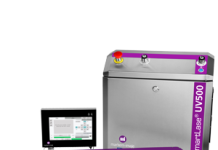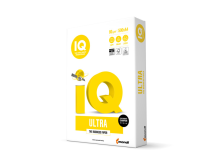HP showcased new opportunities for publishers at the Frankfurt Book Fair, putting printed books back in the spotlight.
While the publishing market is undergoing dramatic changes, HP has a range of solutions for the next big thing in publishing – print.
Digital printing presents exciting opportunities for publishers to meet the demands of the modern market and produce books of lasting value that have the immediacy of the online age, said Paul Randall, market manager, Direct Marketing, Transactional and Publishing Segment, EMEA, HP. HP Indigo and HP Colour Inkjet Web Presses deliver the quality standards of traditional book publishing while offering a business model for today’s commercial environment.
The HP stand features the HP Digitally Printed Bookstore with a comprehensive range of books, printed on HP Indigo and HP Color Inkjet Web Presses that demonstrate the versatility and quality of digital book production with examples including art books, fiction, children’s books, travel books and versioned and personalised books.
With the ability to print on coated, uncoated, gloss and recycled stocks and achieve rich black text and outstanding colour reproduction, HP digital presses are suited to most categories of book production and can be used in conjunction with finishing equipment for case and perfect bound books.
At present, there are some 250 specialist book printers using HP digital presses in 50 countries across six continents. Representatives from some of these international book printers have an area on the stand where they are available to talk about the business benefits and advantages of digital book production, networking and the ability of publishers to Think Global and Print Local.
With the market for digitally printed books predicted to grow to 151 billion pages by 2014 (1), (totalling 28 per cent of all physical books being printed digitally by 2016 (2)) and a growing number of specialist digital book printers, publishers are well positioned to take advantage of the digital business model.
HP digital printing combines the advantages of offset litho quality with production immediacy and flexibility. Publishers can respond quickly to market demands and editorial changes and updates – a great advantage for content-sensitive publications like textbooks, law books, travel guides and other books that need to compete with online information.
A powerful proposition for publishers
Publishers can enjoy three main benefits by digitally printing their books:
Reduced risk: By only printing what they need, lead times can be shortened and the risk of having to warehouse books is greatly reduced. With an average of 30 per cent of printed books returned to publishers and eventually pulped, this represents a great potential saving.
Revenue streams from backlists: About 90 per cent of a publisher’s list is out of print. With digital printing, it is possible to bring books on the backlists into production again quickly and cost-effectively.
Print on-demand: With easily controlled run-lengths, it is possible to release only enough books onto the market to meet demand, but not so many that they will require warehousing. Reprints are easy and fast, and present a far lower risk than a conventional print requiring more copies.
The HP Indigo 5600 and 7600 Digital Presses and the B2 (75cm/29in) format HP Indigo 10000 Digital Press(3) offer powerful sheet-fed options to commercial printers that want to add high-quality, short-to-medium run books to their product offering. The B2 format of the HP Indigo 10000 Digital Press enables the efficient production of lay-flat books, coffee table books and large dust-jackets.
(1) Interquest, 2010
(2) HP estimate 2010
(3) Scheduled for delivery in early 2013





















